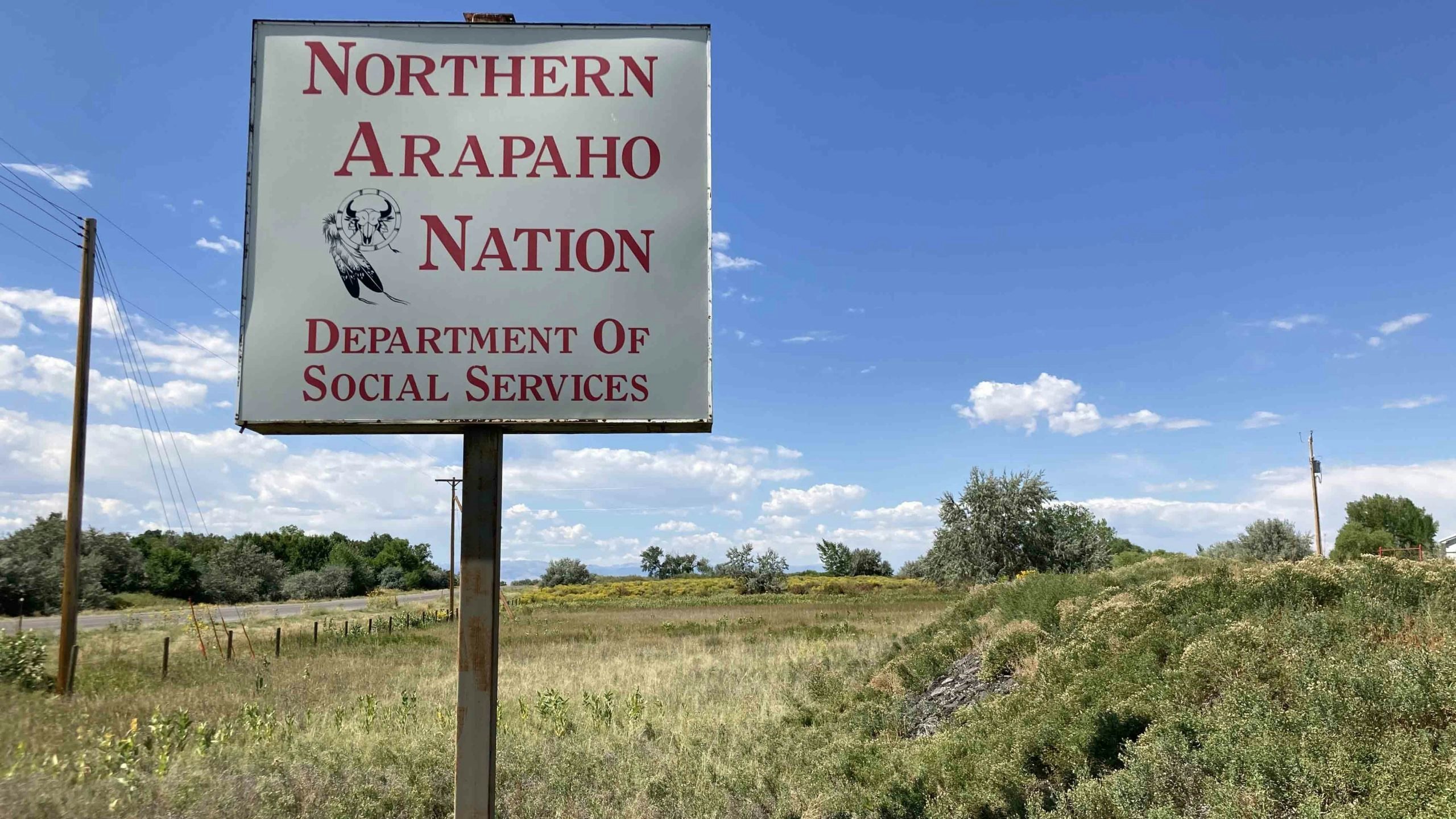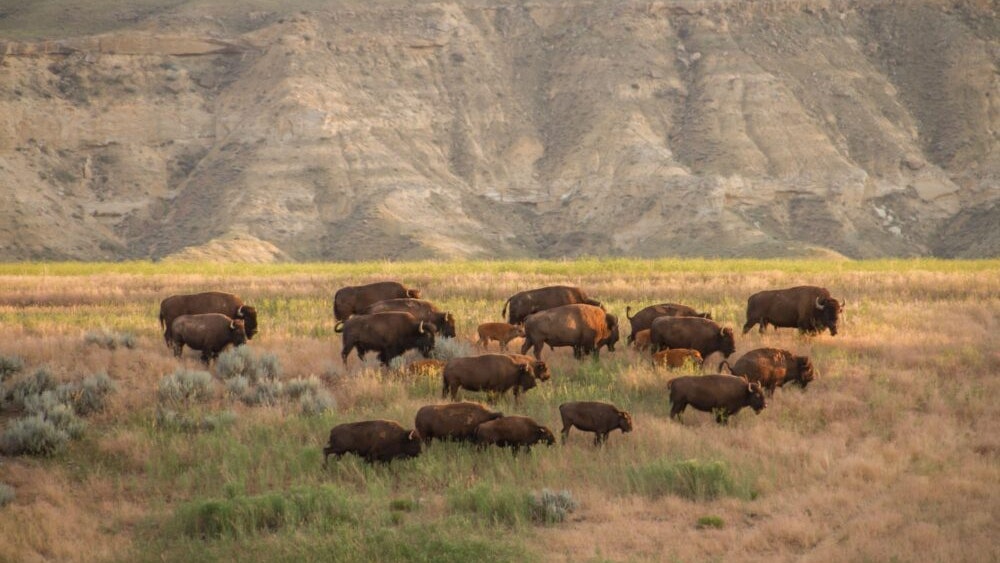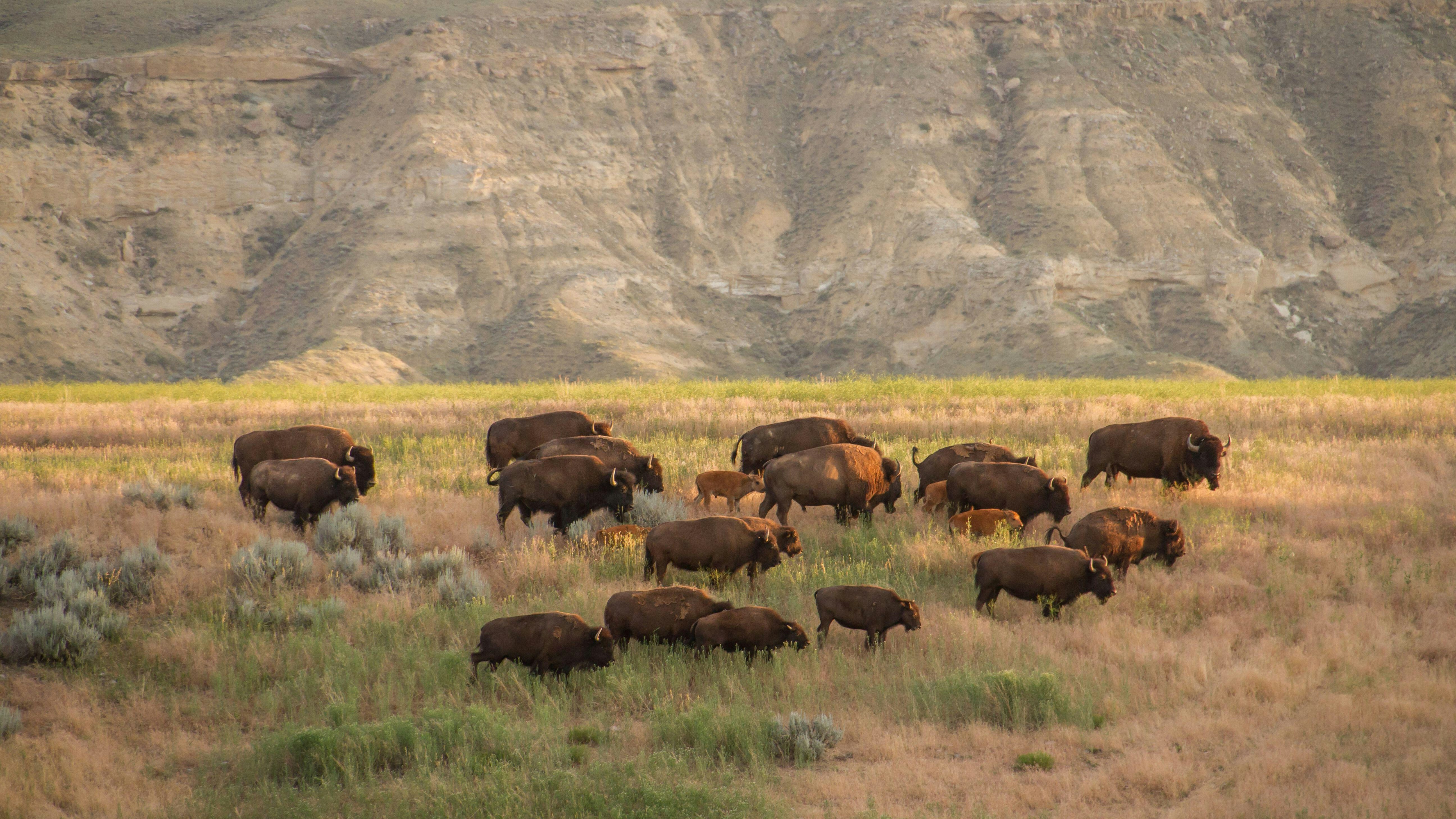With the possibility of a change in federal law looming, Wyoming lawmakers on Monday considered drafting a law requiring American Indian foster children to be placed as much as possible with extended family or in tribal homes, rather than non-tribal families.
A federal law– the Indian Child Welfare Act (ICWA) of 1978 – does just that. But that law is now being questioned by the U.S. Supreme Court and could be overturned in the coming months.
Meeting in Riverton on Monday, members of the Wyoming Legislature’s Select Committee on Tribal Relations contemplated making a Wyoming version of the endangered federal law, but they have not yet drafted such a bill.
“In Indian country, as tribal leaders, we are so worried about this,” said Lee Spoonhunter, a member of the Northern Arapaho Business Council, or governing entity of the Northern Arapaho Tribe. “Because we’re going to lose our children. We’re going to lose our children to the system.”
Speaking on behalf of his tribe, Spoonhunter urged state lawmakers to pursue tribal-first legislation for foster-care and adoptive placement of native children.
Kate Fort, Indian law clinic director at Michigan State College of Law, also urged the state to make its own Indian Child Welfare Act (ICWA), to clarify tribal placement priorities for a “disproportionate” number of tribal children in custody cases.
“While ICWA works, we still see a disproportionate number of native children being removed from their homes than non-native children,” said Fort. “And native children who first encounter a court are four times as likely to be placed in foster care as their non-native counterparts, in the same hearing.”
While some foster-care cases end with parents losing their rights over their children, the Northern Arapaho Tribe has a policy against terminating its members’ parental rights, said Spoonhunter. Because ICWA involves American Indian tribes in custody cases involving tribal children, the Northern Arapaho Tribe is part of those decisions in state courts.
Non-Native Foster Parents
In the U.S. Supreme Court Haaland vs. Brackeen, a group of non-native foster parents, along with the state of Texas and other states, are claiming that the Indian Child Welfare Act is Unconstitutional. The suit also points to the foster families’ struggles as they’ve tried to adopt native children who have been in their care.
The foster families and states have launched four main arguments, said Fort. Those are:
That Congress had no power to pass a law showing preference to tribal adoptive and foster-care families, because Article I of the U.S. Constitution limits its power to legislate on behalf of tribal people;
That the act violates the equal protection clause of the Constitution by favoring one race over another;
That it commandeers the states’ right to make their own laws.
The case should be decided no later than June of 2023.
If the Supreme Court rules that the Indian Child Welfare Act commandeered states’ rights or overstepped Congress’ constitutionally-granted powers, Wyoming still can make its own version of the law, said Fort.
‘Throw Our Indian Law Books Away’
But if the court decides that the federal law is racially unfair, then Wyoming could not pass its own version of that law. In addition, Congress would have to rewrite its entire collection of federal Indian laws, Fort said.
State Sen. Affie Ellis, R-Cheyenne, who co-chairs the tribal relations committee, said lawmakers should be prepared even for the outcome of the Supreme Court declaring federal Indian laws racially unfair.
“It’s convenient to say, ‘we don’t want to look at the race-based argument,’ because most of us won’t know what to do; we’ll throw our federal Indian law books away and start over,” said Ellis. “Months ago I would have said that would never happen, but we all just saw what happened with Castro-Huerta.”
Oklahoma vs. Castro-Huerta was a Supreme Court case decided in June that gave state prosecutors the right to charge non-native suspects in crimes with native victims.
Ellis asked Fort if it would be wiser for the state to wait for the court’s ruling before crafting a state law.
Fort said she would discourage waiting for the ruling because some lawmaking processes can take several months, and because the state’s child welfare systems already are built around the federal law.
Committee co-chair Rep. Lloyd Larsen, R-Lander, floated the idea of the Legislature making a simple, temporary law stating that Wyoming will follow the federal ICWA “as it was written.”
One of the committee’s legal support staffers also noted that a “trigger” law could be made, enacting the state law only after actions by the Supreme Court.
Sovereign
Fort disagrees with the case argument that special legal distinctions for American Indians violate the equal protection clause of the U.S. Constitution. Federal Indian law gives special distinction to American Indians because they are citizens of sovereign tribes, not because of their race, she said.
“Decisions of tribes to decide who their members are is a political decision,” said Fort. “ICWA is, frankly, a remedial law to make sure the states, the courts, aren’t acting wrong when they get Indian children.”
Family, Then Tribe, Then Native
The federal Indian Child Welfare Act comes into play when a child who is a member of an American Indian tribe, or eligible to become a member, is taken from his or her home in a custody proceeding.
A different portion of federal law commands authorities to pursue “reunification” first. Reunification is the process of fixing the situation and returning the child to his or her original guardians.
But failing that and under ICWA, when the state opens a custody case it must notify the child’s tribe and let the tribe intervene in the case, then show placement preferences in a specific order. Namely, the child’s extended family is preferred, followed by a licensed foster-care family the tribe approves of, then a different native foster-care home, then a tribally-run group home.
“The goal is to make sure the child stays in their community – stays with family if at all possible,” said Fort.
The state also must meet a higher burden of proof to remove a tribal child from his or her home.
“The state has to prove up to a standard of clear and convincing evidence that continued custody of the child by the parent is likely to result in serious emotional or physical harm to the child,” said Fort.





